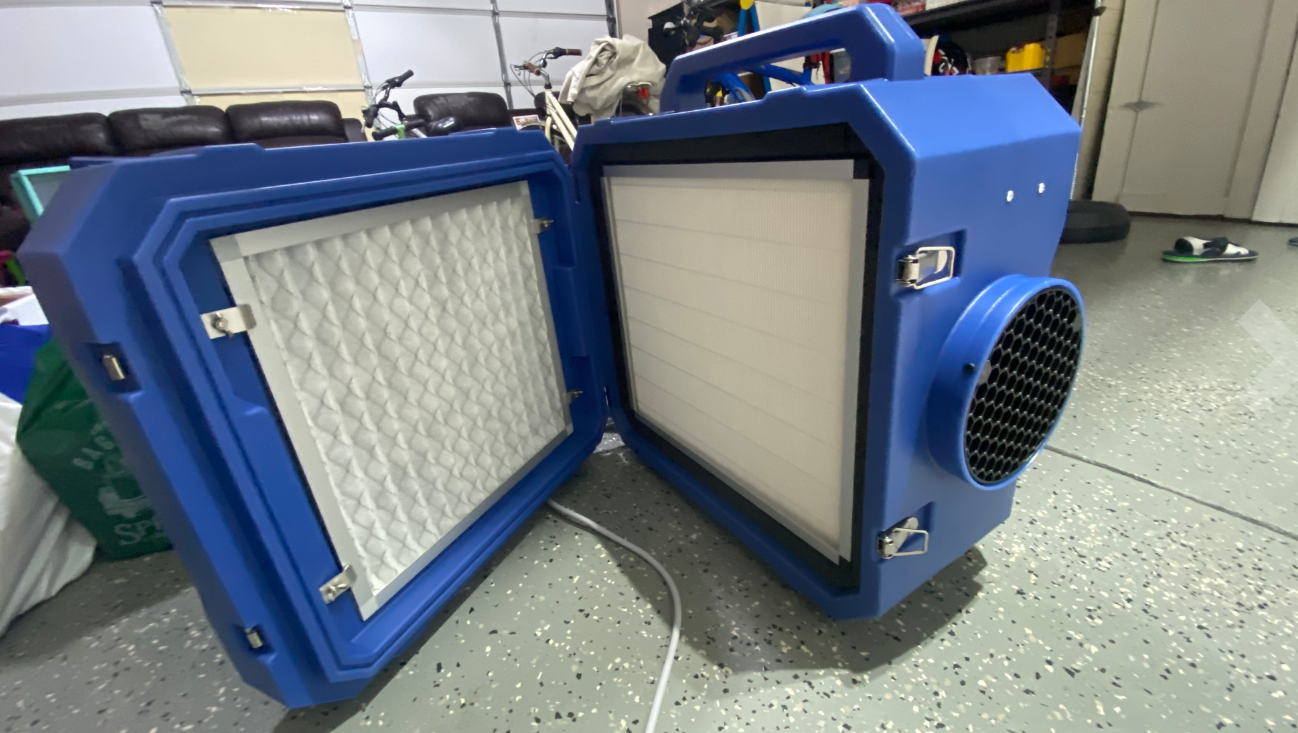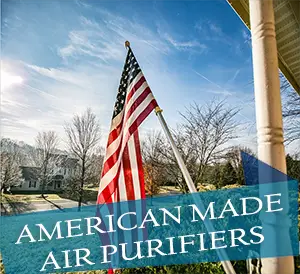
A business needs to be clean and pollution-free – if you’ve thought about getting an air scrubber, you might wonder: how effective are scrubbers in keeping the air and surroundings clean? Generally, air scrubbers are recommended for businesses where air pollution and mold problems are often a headache.
We wrote this guide to help you out by showing the different ways an air scrubber can benefit your business or work area to become free from pollution. We recommend an air scrubber if you’re maintaining a job site with constant dust and debris or if you have a restaurant where mold remediation is a concern.
Although most air scrubbers meant for industrial use often have negative ion filters, newer units nowadays have HEPA, activated carbon, and MERV-10 pre-filters, making them powerful yet accurate when it comes to cleaning smaller particles in the air.
What are the pros and cons of a scrubber?
There are many advantages to using an air scrubber, but there could also be a few hiccups (don’t worry – they are not dealbreakers). Here’s a list we compiled regarding the pros and cons of an air scrubber to let you know – so that you counter these minor cons:
| Pros | Cons |
Has quality filters (HEPA, MERV-10, activated carbon) |
A little tricky to configure and maintain |
As mentioned above, air scrubbers can be slightly tricky to install or configure since they work on a larger scale. For instance, most air scrubbers need to be daisy-chained for bigger areas, such as warehouses and construction sites. You’ll need to maintain and check the GFCI plug, the grounding, and the ducting.
However, if you get a professional to help you with the basics of air scrubber maintenance, it will be worth it in the long run since air scrubbers can work in unison and cover a larger scale compared to an air purifier. Therefore, it’s a great investment for any business – especially those with pollution problems.
How efficient are scrubbers?
If an air scrubber is equipped with a powerful filter, such as a HEPA filter, it will clean the air better, resulting in more customers and happier employees for your business. But what does a HEPA air scrubber do against pollution? Here are some of its functions:
- Cleans 99.97% of dust, pollen, mold, smoke, and the like (as small as 0.3 microns)
- Keeps them trapped in the filter until a replacement (there’s a filter light indicator for that)
- Maintains healthy air without ozone emissions (HEPA filters are ozone-free and are typically CARB-compliant)
- Higher CADR = faster cleaning time (depending on the room size)
- Can be daisy-chained (ducted) for better power
As you can see, the daisy-chaining (using a GFCI outlet) is what makes an air scrubber perfect for business because of its large-scale cleaning capability. It also has variable speed control and an hour meter, making it easier to keep track when it comes to industrial operations.
How do scrubbers reduce pollution?
So, how do air scrubbers work? These units use filters that are similar to those of an air purifier – but they work on a grander scale. Here are some of the most common filters that you’d likely see on an air scrubber (and how they function):
| type of Filter | Works Against The Following |
| HEPA filter | Smoke, dust, pollen, and other particles up to 0.3 microns at 99.97% |
| H13 HEPA | Dust, smoke, pollen, and other particles up to 0.1 microns at 99.95% |
| Activated carbon | Bad odor, pet smells, kitchen leftover odor, VOCs, chemical smells |
| MERV-10 pre-filter | Dust, pollen, larger pollutant particles |
How do you calculate the efficiency of a scrubber?
The efficiency of an air scrubber can be grouped into different categories: energy efficiency, filter efficiency, and penetrating capability. The latter two aren’t very much used so we’d like to share the formula for energy efficiency instead.
The energy consumption is computed by multiplying the airflow volume by the filter resistance and the operating hours. Then, the fan efficiency is multiplied by 1,000. Divide the first product with the second one and that’s the energy efficiency of an air scrubber.
As you can see, the efficiency will vary between units, as well as the differences between areas in terms of energy cost, the amount of time spent on using the air scrubber, and much more factors to consider.
Do scrubbers remove particulate matter?
Yes, air scrubbers do remove particulate matter, such as dust, debris, and other forms of pollution. But, with that said, how effective are scrubbers for a construction site in terms of removing particulate matter? That all depends on the following:
- Do you run the air scrubber often? (We recommend 24 to 48 hours of operation)
- What’s the area of the room? (Often measured in square feet/meters)
- How polluted is the room in question? (Construction sites need a powerful air scrubber)
- How many air scrubbers are daisy-chained together?
- Are the air scrubbers properly installed and strategically placed?
- What’s the CADR of each air scrubber? (Higher CADR means faster air cleaning)
FAQs
How many air scrubbers can you duct together?
Most air scrubbers can be daisy-chained or ducted from 3 to 5 units together using a GFCI plug. This lets you bring the power of many units to clean up a large area, such as a job site or warehouse. Read the user’s manual of the air scrubber on how many units can be put together.
What’s the average CADR of an air scrubber?
Typically, air scrubbers in the market have at least 500 to 550 CFM each. If you stack them together, you’ll have a combination of around 1,500 to 2,000 CFM for the total CADR, which will help you filter a big room or work area quickly.
Do air scrubbers need filter maintenance?
Yes – air scrubbers need maintenance for their filters. Most air scrubbers in the market use HEPA filters so those units need their filter to be replaced every 6 to 12 months depending on the usage. On the other hand, the MERV-10 pre-filter usually just needs to be taken out and cleaned.
Conclusion
To sum it up: how effective are scrubbers for maintaining clean air in your business? Are air scrubbers worth it? We’d say they are very effective – especially if you consider factors such as the size of the room, the CADR of the unit, and the proper placement of your air scrubber(s).


